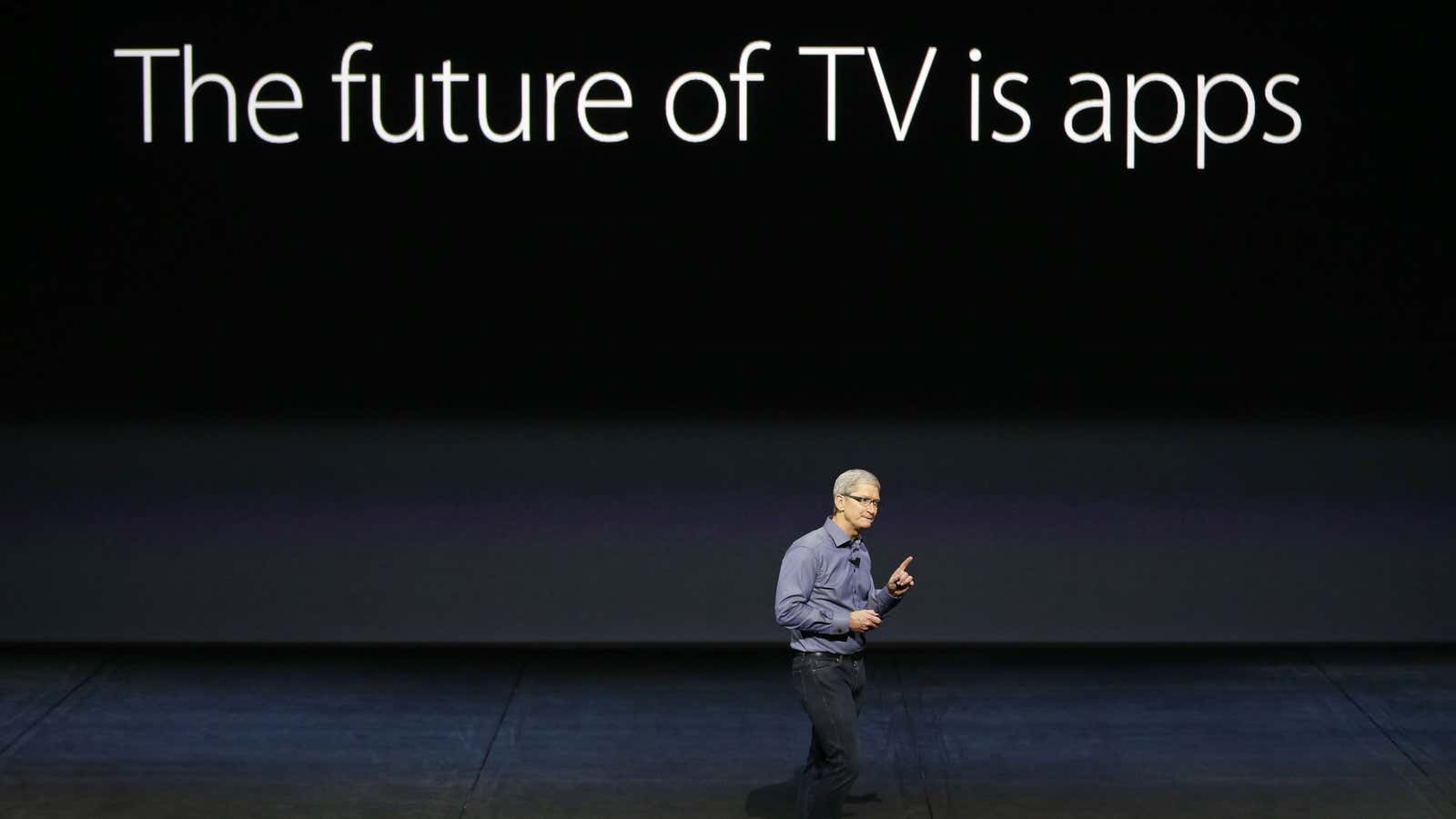Apple doesn’t have a solid TV strategy yet. But CEO Tim Cook thinks he can see the writing on the wall—the much loathed cable-TV bundle is on its deathbed.
Speaking on the earnings call after Apple posted a record first quarter, Cook said (emphasis added):
The way that we participate in the changes that are going on in the media industry that I fully expect to accelerate from the cable bundle beginning to break down is, one, we started the new Apple TV a year ago, and we’re pleased with how that platform has come along. We have more things planned for it but it’s come a long way in a year, and it gives us a clear platform to build off of.
Apple is on the fourth generation of the Apple TV. It now has an app that makes recommendations across streaming-video services and has a universal search function; it is currently limited by only allowing you to find a program across a limited selection of third-party services, but it has the potential to become the online equivalent to a TV Guide for all programming. (The company is also developing a library of original content tied to its Apple Music subscription.)
Media experts have been forecasting the death of the traditional TV bundles for years (BTIG Research media analyst Rich Greenfield tweets with the hashtag “#goodluckbundle”)—and it hasn’t happened yet. But there has definitely been some movement, as Cook pointed out.
Popular cable networks like ESPN are losing subscribers because of unbundling, cord-cutting is becoming more common, TV brands like HBO offer their own subscriptions on platforms like Apple TV, and streaming services like Netflix are hitting member records.
So far, bundling hasn’t as yet disappeared in the US. It’s just taken on new forms.
Companies like Verizon have released slimmed-down packages that allow customers to cherry pick the channels they pay for. Dish Network’s SlingTV, Sony’s Playstation Vue, and AT&T’s DirecTV Now, among others, offer live and on-demand TV packages through the internet. And Hulu and YouTube are expected to introduce live TV offerings this year.
None of these packages seem to top the user experience that you get with cable yet. But they have their benefits—they’re more affordable, the video quality is improving, and their customer-support teams can’t possibly be as miserable to deal with as those at the cable company.
But with Apple, and now Facebook, expanding into the TV business, a real contender that could take down cable might soon emerge.
